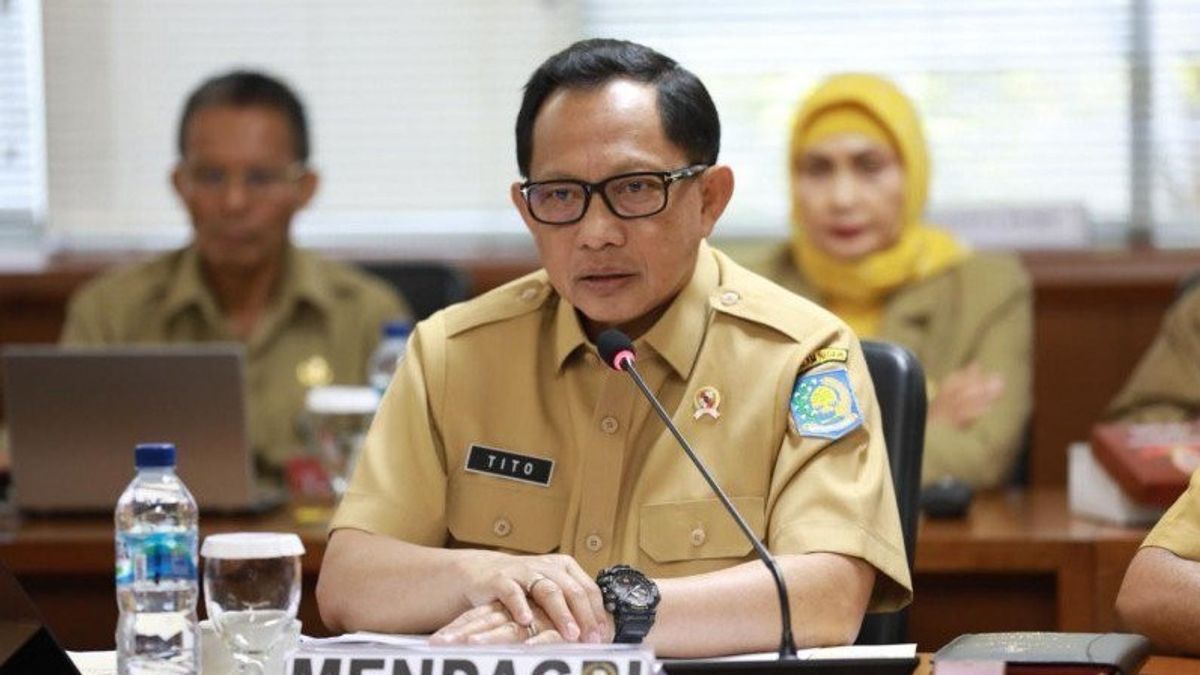JAKARTA - Home Affairs Minister Tito Karnavian will issue a Circular (SE) related to face-to-face learning which will begin in the even semester or January 2021. This letter will be distributed to regional heads.
"This circular will be made soon and next week it will be delivered to all regions," said Tito in a press conference broadcast online on the Ministry of Education and Culture's YouTube account, Friday, November 20.
In this circular, Tito will explain the things that must be prepared by regional heads before the re-opening of schools for teaching and learning activities. While waiting for the circular, the former National Police Chief said regional heads were welcome to develop policies that were in accordance with conditions in their regions.
"Ask the regional heads while waiting for a detailed circular letter, open for regional heads to develop policies according to their respective regions. Later in this letter, we will ensure that the documents for these activities are included in the local government work plan documents, skpd, the budgeting document or APBD, "he said.
"So, we can be sure that all face-to-face protection mechanisms in schools do not become clusters because they have been programmed and budgeted for by each region," he added.
Previously, Minister of Education and Culture (Mendikbud) Nadiem Makarim gave permission for local governments to open schools or carry out face-to-face learning activities starting January 2021. The opening of these schools was no longer based on zoning for the spread of COVID-19 as he had previously conveyed.
"The big difference with the previous SKB, the risk zoning map no longer determines the granting of face-to-face learning permits but the local government determines it, so it can select areas in a more detailed way," said Nadiem in an online press conference broadcast on the YouTube account of the Indonesian Ministry of Education and Culture. Friday, November 20.
"This policy applies from the even semester of the 2020-2021 school year. It will be January 2021," he added.
With the time lag for face-to-face learning, Nadiem hopes that local governments and schools can prepare themselves. "If you want to meet face to face, you must immediately increase your readiness to implement this from now until the end of the year," he said.
Meanwhile, Deputy for Coordination of Education and Religion of the Coordinating Ministry for Human Development and Culture (Kemenko PMK) Agus Sartono said that the re-opening of schools for face-to-face learning was carried out due to various considerations.
For one thing, the distance learning system (PJJ) that was carried out during the COVID-19 pandemic had a negative impact because it made the dropout rate higher because they had to work to help their parents.
"The learning system that is not carried out face-to-face in schools has a negative impact on children. We have the potential to face high dropout rates because many students are forced to work to help their parents and families during this pandemic," said Agus in a press conference which aired on the Ministry of Education and Culture's YouTube account, Friday, November 20.
In addition, differences in access to the quality of distance learning also result in gaps in learning outcomes, especially for children from different socio-economies. Then, the lack of teacher and student interaction, as well as the pressure due to distance learning also causes stress for students.
"By staying at home, it was noted that many children were trapped in cases of violence at home without being detected by the teacher," he said.
The English, Chinese, Japanese, Arabic, and French versions are automatically generated by the AI. So there may still be inaccuracies in translating, please always see Indonesian as our main language. (system supported by DigitalSiber.id)













